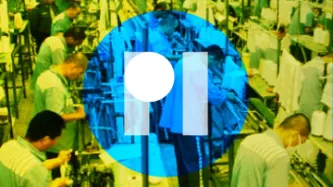Search
Content type: Advocacy
In January 2024, the ILO published a report, Realizing Decent Work in the Platform Economy, following a decision by the ILO Governing Body that the 2025 and 2026 International Labour Conferences would discuss standard-setting on decent work in the platform economy. The report - and the new ILO standard in development - are of interest to Privacy International because of the impacts on workers' privacy and autonomy that arise from the growing use of invasive surveillance practices and…
Content type: Explainer
Behind every machine is a human person who makes the cogs in that machine turn - there's the developer who builds (codes) the machine, the human evaluators who assess the basic machine's performance, even the people who build the physical parts for the machine. In the case of large language models (LLMs) powering your AI systems, this 'human person' is the invisible data labellers from all over the world who are manually annotating datasets that train the machine to recognise what is the colour…
Content type: Advocacy
The European Commission proposed the PWD in December 2021 with the objective to improve the working conditions in platform work. In February 2023 and June 2023 respectively, the European Parliament and the Council reached their respective positions, with trilogue negotiations beginning in July 2023.
PI welcomes the PWD as a mechanism to protect workers’ rights in response to transformations in the workplace, specifically with regard to the growing adoption of algorithmic management systems and…
Content type: Long Read
The rise of the gig-economy, a way of working relying on short term contracts and temporary jobs rather than on an employed workforce, has enabled the growth of a number of companies over the last few years. But without the rights that comes with full employment, gig economy workers today don't have access to essential protections.
In 2021, PI worked with ACDU and Worker Info Exchange to shed a light on the power imbalance between workers and gig economy platforms, exposing how workers find…
Content type: Advocacy
Algorithmic management fundamentally relies on the availability of data to make decisions. The impact that these decisions can have on workers can be financially and emotionally devastating.
PI has previously exposed this issue through the Managed by Bots campaign - in which we called for the conditions under which data is collected and processed to be subjected to effective and robust scrutiny.
Content type: Video
Please note the views expressed in the video are interviewee's own and do not necessarily reflect the views of PI.
Pa used to work for Uber. After some time, Uber started asking him to submit a picture of himself to the platform to confirm it was indeed him who had completed the job. However, with time, the frequency of the requests increased. In the beginning, the requests for a picture only happened once a week, but as time went by Pa told us that he was being prompted to send pictures…
Content type: Long Read
What if your boss was an algorithm? What would you do if your employer suddenly fired you or reduced your pay without telling you why? And without being willing to give you a reason when you ask for one?
This is not science fiction or some far-fetched reality. Millions of people worldwide are working in the gig economy sector for companies like Uber, Deliveroo, Bolt, Just Eat… And this could be the future of work for people working outside the gig economy, as surveillance technologies are…
Content type: Video
Please note the views expressed in the video are the interviewee's own and do not necessarily reflect the views of PI.
Driver X (he wishes to remain anonymous) has been working for Uber for five years. After working for Uber for two and half years, he suddenly received a message telling him that his account had been temporarily suspended and asking him not to call Uber while the investigation was pending. He was baffled, as he had an excellent record and rating, with plenty of positive…
Content type: Video
Please note the views expressed in the video are the interviewee's own and do not necessarily reflect the views of PI.
In his interview, Alexandru told us that he started to work for Uber in 2018. Despite being aware of negative experiences of others, he felt that everything was running smoothly, and for a while, Uber met his expectations.
However, in 2021, he received a notice from Uber that they had noticed fraudulent activity associated with his account. He went on social media and…
Content type: Examples
New workplace technologies are generating mountains of data on workers despite a lack of clarity over how the data is used and who owns it. In offices, smart badges track interactions and sensors track fitness and health; in trucks sensors monitor drivers' performance in the name of safety. In the US state of Illinois, between July and October 2017 26 lawsuits were filed by employees alleging that their employers had violated the state's Biometric Information Privacy Act, which requires a…
Content type: Examples
In January 2019 the UK's Information Commissioner's Office announced it was investigating an incident in which the food service company Deliveroo reported that some of its customers had complained they were charged up to £1,000 for orders they had not placed. Customers have used social media to report similar problems in the past. Deliveroo claimed that the problem was not its own security but customers who had reused user names and passwords that had been exposed by data breaches on other…
Content type: Examples
For some months in 2017, in one of a series of high-risk missteps, Uber violated Apple's privacy guidelines by tagging and identifying iPhones even after their users had deleted Uber's app. When Apple discovered the deception, CEO Tim Cook told Uber CEO Travis Kalanick to cease the practice or face having the Uber app barred from the App Store.
External Link to Story
https://www.nytimes.com/2017/04/23/technology/travis-kalabnick-pushes-uber-and-himself-to-the-precipice.html
Content type: Case Study
Gig economy jobs that depend on mobile applications allow workers’ movements to be monitored, evaluated, and exploited by their employers.
The so-called “gig economy” has brought to light employers’ increasing ability and willingness to monitor employee performance, efficiency, and overall on-the-job conduct. Workplace surveillance of gig economy workers often happens without employees’ awareness or consent. This is especially evident in the app-based gig economy, where apps act both as an…






















